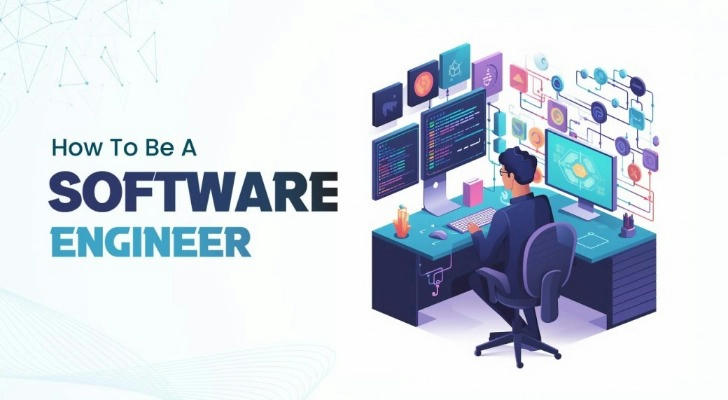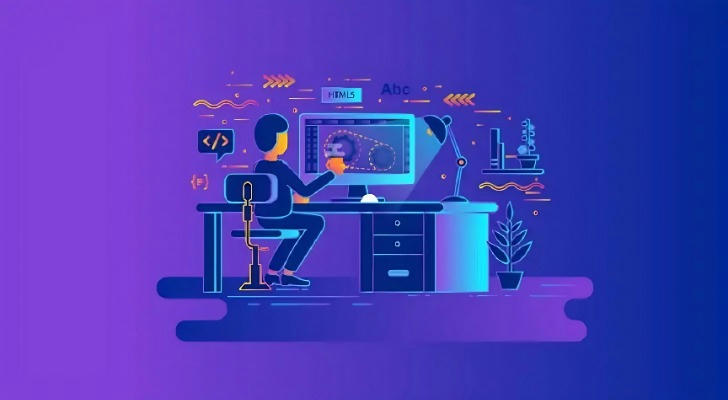From Warehouse Worker to Software Engineer: A Journey Rewritten in Code
Five years ago, I was working in a logistics warehouse, hauling hundreds of heavy boxes each day. Back then, I never imagined that one day, I’d be sitting in a tech company office, writing code that powers real-world applications—working as a bona fide software engineer.
This isn’t a story of genius or privilege. I didn’t attend a prestigious school or grow up with access to computers. My journey is one of learning, persistence, and transformation. It’s a real-life example that proves: with determination and effort, even ordinary people can use code to change their lives.

Chapter One: Tired of the Repetition
After graduating high school, I didn’t go to college. I dove straight into the workforce. I worked as a fast-food server, a convenience store clerk, and eventually, a warehouse worker. The job was physically demanding—loading, labeling, and sorting items day in and day out. But the real exhaustion came from the sense of stagnation, the feeling that nothing would ever change.
One day, during lunch break, I noticed a coworker watching a programming tutorial on his phone. He told me he was learning Python and planning to take night courses to become a data analyst. At first, it sounded like something completely out of reach—but deep down, I felt a spark. What if I gave it a try too?
Chapter Two: Learning to Code from Scratch
I started learning to code after work. At first, I watched free YouTube tutorials. Then I discovered platforms like Codecademy and freeCodeCamp. It was tough—especially since I didn’t have a strong background in logic or math. The code looked like a foreign language. But I set a goal: study at least one hour every day. I took notes, rewatched videos, and Googled everything I didn’t understand.
After about three months, I completed freeCodeCamp’s web development course and could build simple static websites. I began taking small freelance jobs—designing a restaurant’s homepage, building a product showcase site for a local shop. The pay wasn’t great, but it gave me something far more valuable: confidence.
Chapter Three: Stepping into Structured Training
Self-study was working, but I needed something more comprehensive to truly break into the tech field. So I enrolled in a local Full-Stack Software Engineering Bootcamp. It was an intensive six-month program covering HTML, CSS, JavaScript, Node.js, React, databases, Git, and more.
The training was intense—eight hours a day of classes, with homework and group projects at night. But I thrived. We built real-world projects: a mini social network, an e-commerce system, and an online chat platform. These projects weren’t just portfolio pieces; they taught me how to think like a developer and solve problems creatively.
The bootcamp also offered career coaching—resume reviews, mock interviews, and technical Q&A sessions. I learned how to talk about bugs, how to present projects, and how to market my skills confidently.

Chapter Four: Landing My First Dev Job
After the bootcamp, I spent two months job hunting. I sent out dozens of resumes and faced plenty of rejections. But I didn’t quit. Eventually, I landed an offer from a small startup as a Junior Front-End Developer, with a starting salary of $62,000.
I’ll never forget that moment—I could barely sleep that night. I knew it wasn’t the end, just the beginning. The real work started on the job, where I had to build live features, deal with real users, and collaborate with a real team. I learned more in the first three months on the job than I had in six months of training.
A year later, I was promoted to Mid-Level Developer and assigned to mentor an intern. Watching him build his first working feature under my guidance, I finally realized—I had truly become a software engineer.
Chapter Five: What Career Transformation Gave Me
Becoming a software engineer changed everything. My income more than tripled—from under $30,000 a year to over $90,000. My work environment improved dramatically. No more lifting boxes in a stuffy warehouse—now I enjoy air conditioning, flexible hours, and creative challenges.
But the biggest change was in my mindset. I now believe in long-term growth. I’m currently studying system architecture and planning to move toward a technical lead position. I’ve started contributing to open-source projects, writing posts on tech forums, and mentoring beginners—just like I once was.
I also returned to the same bootcamp as a part-time teaching assistant. Every week, I share my experience with a new batch of aspiring developers. People often ask, “How did you keep going?” I always say, “Because I knew that if I didn’t change, I’d be lifting boxes for the rest of my life.”
Conclusion: Every Ordinary Person Deserves an Extraordinary Future
Programming isn’t magic—it’s just a language. And like any language, anyone can learn it. Software engineering may be challenging, but it offers a sense of freedom, purpose, and opportunity that few other careers can match.

If you’re stuck in a job that drains your energy or offers no growth, let my story be your proof: change is possible. With commitment, courage, and code, you can build a brand-new life—one line at a time.
